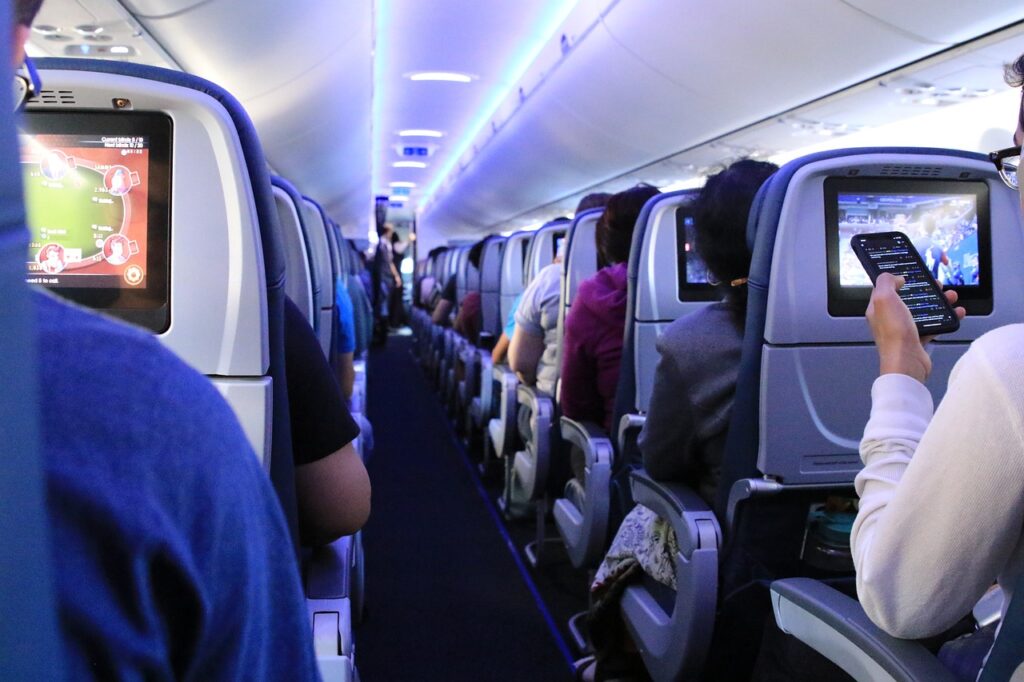
If you’ve ever been on a flight and heard the announcement asking whether there’s a doctor on board, it can be quite scary. While an emergency can happen at any time, there are several things to keep in mind to ensure your next flight is as safe as it can be. A recent article by The Post and Courier in Charleston, South Carolina, rounded up advice from doctors about how to stay healthy while traveling, especially if you have underlying medical conditions.
According to the article, on commercial flights, the cabin air is usually pressurized to the equivalent of around 6,000 to 8,000 feet in altitude, which means passengers are inhaling less oxygen than they might normally. The low pressure can cause issues for passengers with cardiac issues that make it more difficult for the heart to pump blood, as well as those with anemia, underlying lung issues, cerebrovascular disease, such as stroke, or other conditions that require supplemental oxygen.
Additionally, the lower air pressure in the cabin can cause gas trapped inside the body to expand. This can affect someone who has recently undergone bypass surgery.
On an airplane, the cabin air is also very dry, with 5-25 percent relative humidity. This can lead to problems such as dry eye or a cough. Passengers need to stay hydrated. It’s recommended that you bring your water bottle and fill it up after you pass through security. You should limit caffeine and alcoholic drinks, which can be dehydrating.
Staying hydrated will also help prevent blood clots. According to the article, “The long periods of immobility that come with air travel can elevate the risk for deep vein thrombosis — clots that begin in large veins, often in a leg. If a clot travels to the lungs, it can be fatal.” It’s recommended to wear compression socks, especially on long flights.
Lastly, follow the safety instructions and keep your seat belt on while seated. Turbulence can occur without warning. Being buckled up will help prevent injury.
It’s also a good idea to follow many of the protocols we adopted during the pandemic, particularly in regards to not traveling if you are not well and wearing a mask to prevent the spread of germs.
Do you take any precautions when traveling? Message The Seniors Trust on Facebook or X (formerly known as Twitter) and let us know what you do to stay healthy when you fly.
